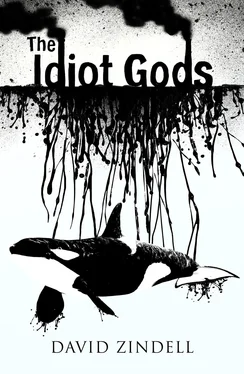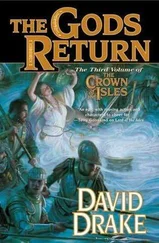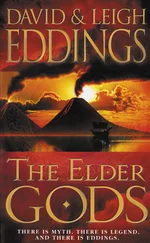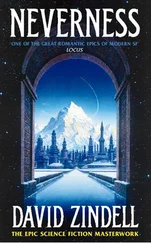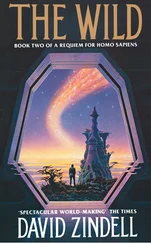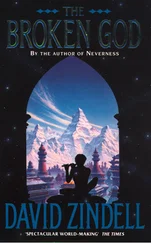A better question, too little asked when considering what we think of as intelligence, would be to inquire how much of an animal’s brain can be devoted to the interconnectivity and association of ideas? In rats, this associative skill has been measured at approximately 10%. A cat tests out at 50% while a chimpanzee scores a 75%. Human beings, at 90%, thus need only 10% of our brains to operate our sensory and motive capabilities. What about the whales? The average associative skill measure estimated for cetaceans, at 96%, much exceeds our own, while orcas have available approximately 97.5% of their very large brains for a very wide range of cognitive functions.
More recently, Suzana Herculano-Houzel has argued in favor of another way to estimate intelligence, hitherto impossible to measure correctly. Citing the work of Williams and Herrup, she points out the reasonableness of assuming that the computational capacity of the brain should correlate with the absolute number of neurons in that brain, specifically in the neocortex, the supposed seat of animals’ higher cognitive abilities. How, though, to actually count the number of neurons in a brain?
In a brilliant piece of science, Herculano-Houzel succeeded in using detergent to dissolve the brains of various species to make a ‘brain soup’ in which neurons’ nuclei could be separated out and counted. The computations that resulted cleared up several mysteries. It turned out, for instance, that the elephant, with a brain more than three times as massive as that of the human being, does have more neurons; about 257 billion neurons compared to a human’s 86 billion. However, 98% of those neurons are to be found in the cerebellum; the elephant’s cerebrum contains a paltry 5.6 billion neurons compared to the 16 billion in the human cerebral cortex. That seems to explain our experience that human beings are a good deal smarter than the admittedly still-smart elephant. As Herculano-Houzel likes to say, ‘Not all brains are made the same.’ As she puts it, brains scale differently in different species and in different orders. The primate brain, and particularly the human brain, has evolved to pack more neurons more efficiently into a smaller volume, thus giving humans an advantage in intelligence over other species.
What, then, of the whales? Cetaceans share a rather close phylogenetic relationship with Artiodactyls such as pigs, deer, and giraffes. Based upon the scaling for those species, Herculano-Houzel predicted that the count of neurons in the much larger cerebral cortexes of several kinds of cetaceans would actually come out to a significantly lower number than that of humans. The largest cetacean cortex, that of the sperm whale, would contain fewer than 10 billion neurons, still much less than that of a human. It seemed that human beings’ ranking of number one would remain unchallenged.
There the matter stood until a whale hunt happened to deliver the brains of ten long-finned pilot whales into researchers’ hands. Using the techniques of optical dissector stereology, it was discovered that the neurons in the pilot whale neocortex numbered 37.2 billion – more than twice the human’s 16 billion. Heidi S. Mortensen, Bente Pakkenberg, and five others described the quantitative relationships in the delphinid neocortex in a paper published in Frontiers of Neuroanatomy . Their discovery should rank among the greatest in importance in the history of science. Instead, this very great breakthrough remains largely unknown. The cortical neurons of the orca have yet to be counted, but it would not be surprising if they topped out at over 75 billion.
As if all this weren’t enough to dethrone Man as the King of Creation, one more humbling discovery should be considered. In addition to the previously mentioned three primary structures of the mammalian brain – the rhinic, the limbic, and the supralimbic – cetaceans have evolved a fourth cortical lobe absent in any land mammal, human beings included. Although we do not yet know the precise functioning of this paralimbic lobe, it has been speculated that it integrates and enhances perceptions of sound, sight, taste, and touch. This would make sense of the orcas’ synesthetic powers, what Arjuna calls ‘the fiery splendor of sound and the music of light.’ It may also have something to do with orientation in space and time and the orcas’ perception that they can journey at will through the one as readily as the other.
Given the limitations of science and our ignorance of what really goes on inside the minds of whales, we believe that it would be as silly to try to calculate the cetaceans’ intelligence as it would be to count the number of angels that can dance on the head of a pin. Were one to attempt to do so, however, considering the enormous size of the cetacean brain, considering its differentiation, sectional specialization, neural connectivity, and complexity (to say nothing of various orca feats such as the truly astounding acquisition of numerous languages), it would be enticing to come up with a rather large number. If the average human IQ can be measured at 100, with Economics Nobel Prize winners at 153 and geniuses on the order of an Einstein or a Goethe perhaps coming out at around 200, then an orca would score five times that while a sperm whale topped out at over 2,000.
What do orcas do with such massive intelligence? We have already mentioned their astonishing ability to learn languages (a sponge absorbing water is not an inaccurate metaphor), and Arjuna has much to say about the musical/philosophical compositions that the orcas call rhapsodies. All the whales have powers of the mind of which we have only the dimmest of intimations. How else can the seeming Miracle of the Solstice be explained? The speed of sound in water at 20 degrees Celsius is 1,482 meters per second – far too slow to account for what otherwise can be explained only by positing some sort of instantaneous planetary communication.
That we must accept the existence of certain so far inexplicable abilities and phenomena in the lives of whales does not imply that we should not question Arjuna’s interpretation of some of them. What are we to make of the impossible creatures that he calls the Seveners? Certainly many strange species dwell as yet undiscovered in the vast reaches of the oceans. In many ways, we know much more about planets millions of miles from earth than we do the perpetually dark deeps of our own oceans. Could a complex animal assemble itself out of tiny multi-cellular organisms in a matter of minutes? Could such a creature possess the sort of intelligence that Arjuna accords it?
To the first question, we have a hint of an answer in the pyrosomes: colonies of thousands of zooids a few millimeters in size that associate with each other in huge, bioluminescent tubes up to twenty meters long and two meters in diameter – capacious enough to fit a grown human being inside. To the second question, we must incline toward a resounding ‘no’ because pyrosomes and any other conceivably similar species are not complex and lack anything resembling a brain.
And yet. And yet. Compendiums of findings about the Plantae kingdom (see Tompkins’s and Bird’s The Secret Life of Plants and Mancuso’s and Viola’s Brilliant Green ) suggest that trees, flowers, ferns, mosses, and the like can be said to possess a real intelligence completely absent in a brain. And then there is the recent discovery of bacteria that might need to be classified as an entirely new and seventh kingdom of life. It seems that the species of Geobacter metallireducens and Shewanella , found in certain estuaries and other aquatic environments, have evolved to strip and deposit electrons from metals and various minerals, thereby essentially eating and breathing electricity. As well, they have the ability to interconnect with each other in ‘cables’ of thousands of individual cells. It is thought that this association is facilitated by ‘nanowires’ that are an extension of the cell membrane and which can conduct electricity in a biological circuit.
Читать дальше
